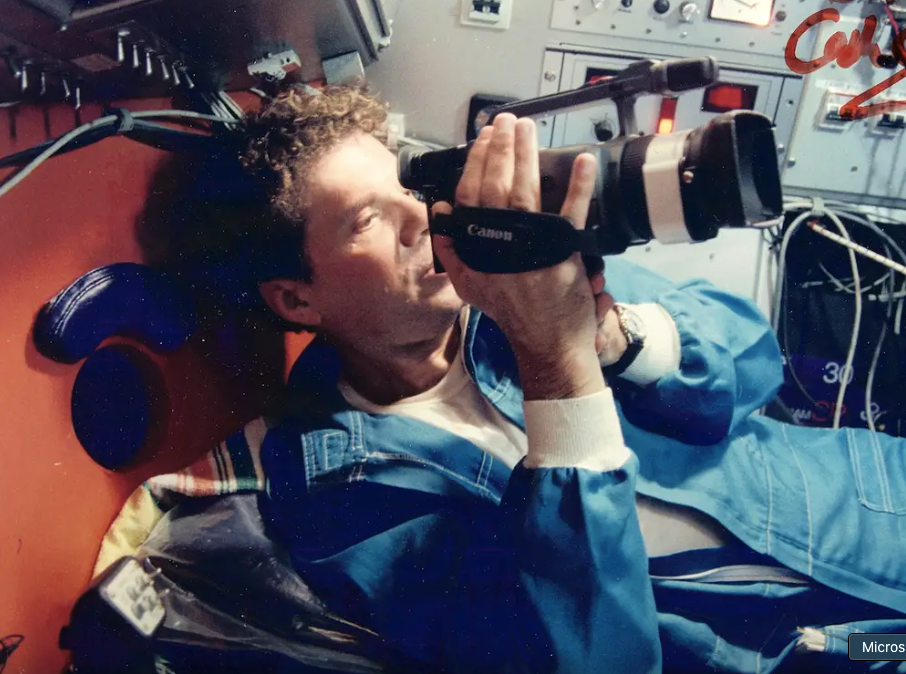|
Getting your Trinity Audio player ready...
|
In the wake of the tragic deaths of five individuals aboard the Titan submersible, Dr. Michael Guillen, a renowned scientist, journalist, and author, has emerged as a prominent voice advocating for a temporary halt to deep-sea tourism. Dr. Guillen, who himself narrowly escaped a harrowing encounter in 2000 when his submersible collided with the propeller of the Titanic wreck, believes it is crucial to reassess the risks involved in underwater exploration.
During an interview on CNN, Dr. Guillen elaborated on the two fundamental reasons underpinning his call for a pause. Firstly, he emphasized the inherent perils of the sea, cautioning that the ocean should not be treated as a recreational space. Reflecting on his own experience, he recounted the chilling reality of the North Atlantic waters—dark, cold, and ever-threatening. “The tiniest little mistake,” he warned, “could lead to the ocean swallowing you up.”
Secondly, Dr. Guillen highlighted the profound significance of underwater sites, shedding light on his transformative encounter with the Titanic wreck. Initially intending to report on a mere shipwreck, he found himself overwhelmed by the realization that this underwater realm held the final resting place of countless lives. “Men, women, and children—over 1,000 of them,” he somberly noted. To him, these submerged domains were sacred grounds that demanded respect.
“It’s imperative that we pause and thoroughly investigate what transpired, not only to rectify any issues but also to truly comprehend the dangers and sanctity of this site,”
Dr. Guillen asserted.
He emphasized the need to dispel any misconceptions that deep-sea exploration is akin to a joyride or a mere tourist attraction. Instead, he urged a collective reflection on the ocean’s magnificence and its potential for tragedy, advocating for responsible and measured actions moving forward.
As the debate surrounding the future of deep-sea tourism intensifies, Dr. Michael Guillen’s first-hand experience serves as a poignant reminder of the risks involved. His impassioned plea for a temporary suspension of underwater excursions invites both industry stakeholders and enthusiasts to reevaluate their approaches and prioritize safety and reverence for the hallowed depths of the ocean.
Dr. Guillen’s impassioned plea has resonated with stakeholders and enthusiasts alike, prompting a broader conversation about the need to reevaluate existing approaches and prioritize safety and reverence for the deep-sea environment. The recent incidents involving the Titan submersible have sparked concerns regarding the overall preparedness and regulations governing underwater tourism.
Industry leaders are now facing mounting pressure to implement stricter safety measures and ensure comprehensive training for operators and participants. The call for standardized protocols and guidelines, developed in collaboration with experts like Dr. Guillen, is gaining traction as the imperative to protect human lives takes precedence over commercial interests.
Environmental organizations and conservationists have also joined the chorus of voices urging caution. They argue that deep-sea tourism should not come at the expense of the fragile marine ecosystems that harbor unique and often vulnerable species. Advocates for marine conservation emphasize the importance of sustainable practices and responsible tourism that minimize disturbances to the delicate balance of underwater ecosystems.
Government bodies responsible for regulating the tourism industry are being urged to review and update existing legislation to reflect the evolving risks and challenges posed by deep-sea exploration. The development of comprehensive safety standards, regular audits of tour operators, and the establishment of designated protected areas are among the measures being proposed to ensure the long-term sustainability of underwater tourism.
In response to the growing concerns, some deep-sea tour operators have voluntarily suspended their operations, pending a comprehensive review of safety protocols and risk management procedures. This self-imposed hiatus demonstrates a willingness to address the underlying issues and underscores a commitment to the well-being of both participants and the marine environment.
Public opinion remains divided, with proponents of deep-sea tourism emphasizing the educational and scientific value of these expeditions. They argue that responsible exploration can contribute to our understanding of the ocean’s mysteries and aid in the advancement of scientific research and marine conservation efforts.
Striking a balance between the benefits of exploration and the preservation of underwater heritage is an ongoing challenge that requires careful consideration and collaboration among all stakeholders involved.
As the discussions surrounding deep-sea tourism continue, Dr. Guillen’s harrowing experience serves as a poignant reminder of the inherent dangers and the need for a cautious and respectful approach. The path forward lies in a comprehensive reassessment of industry practices, collaborative efforts to develop robust safety standards, and a collective commitment to safeguarding the ocean’s vast and awe-inspiring depths.
Only through these combined efforts can the allure of underwater exploration be balanced with the imperative to protect both human life and the extraordinary wonders that lie beneath the surface of our planet’s waters.



